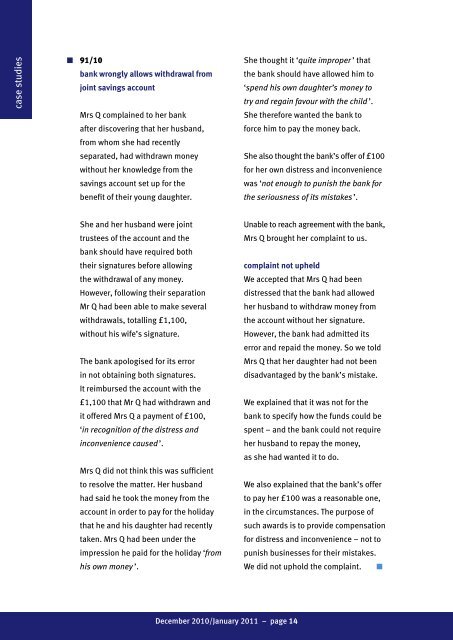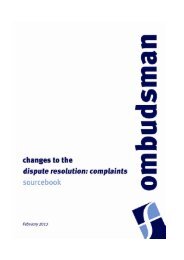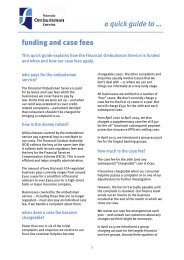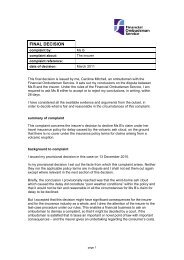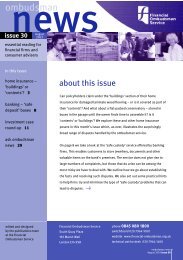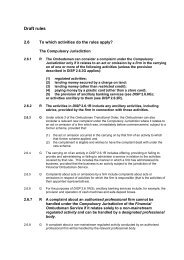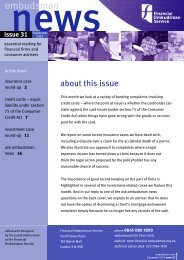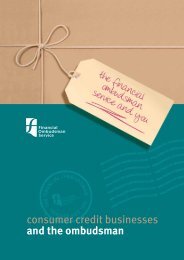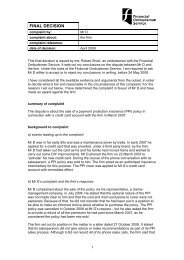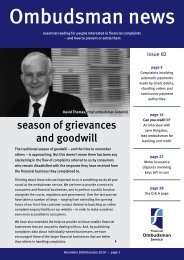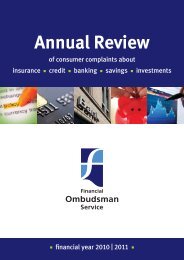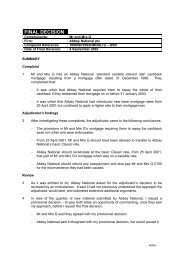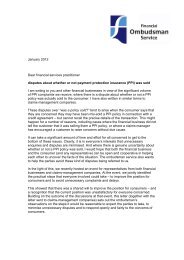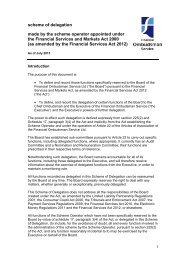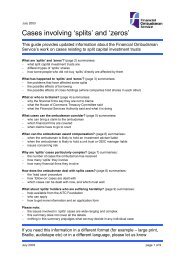Ombudsman News Issue 91 - Financial Ombudsman Service
Ombudsman News Issue 91 - Financial Ombudsman Service
Ombudsman News Issue 91 - Financial Ombudsman Service
- No tags were found...
Create successful ePaper yourself
Turn your PDF publications into a flip-book with our unique Google optimized e-Paper software.
case studiesn <strong>91</strong>/10bank wrongly allows withdrawal fromjoint savings accountMrs Q complained to her bankafter discovering that her husband,from whom she had recentlyseparated, had withdrawn moneywithout her knowledge from thesavings account set up for thebenefit of their young daughter.She thought it ‘quite improper ’ thatthe bank should have allowed him to‘spend his own daughter’s money totry and regain favour with the child ’.She therefore wanted the bank toforce him to pay the money back.She also thought the bank’s offer of £100for her own distress and inconveniencewas ‘not enough to punish the bank forthe seriousness of its mistakes ’.She and her husband were jointtrustees of the account and thebank should have required boththeir signatures before allowingthe withdrawal of any money.However, following their separationMr Q had been able to make severalwithdrawals, totalling £1,100,without his wife’s signature.The bank apologised for its errorin not obtaining both signatures.It reimbursed the account with the£1,100 that Mr Q had withdrawn andit offered Mrs Q a payment of £100,‘in recognition of the distress andinconvenience caused ’.Mrs Q did not think this was sufficientto resolve the matter. Her husbandhad said he took the money from theaccount in order to pay for the holidaythat he and his daughter had recentlytaken. Mrs Q had been under theimpression he paid for the holiday ‘fromhis own money ’.Unable to reach agreement with the bank,Mrs Q brought her complaint to us.complaint not upheldWe accepted that Mrs Q had beendistressed that the bank had allowedher husband to withdraw money fromthe account without her signature.However, the bank had admitted itserror and repaid the money. So we toldMrs Q that her daughter had not beendisadvantaged by the bank’s mistake.We explained that it was not for thebank to specify how the funds could bespent – and the bank could not requireher husband to repay the money,as she had wanted it to do.We also explained that the bank’s offerto pay her £100 was a reasonable one,in the circumstances. The purpose ofsuch awards is to provide compensationfor distress and inconvenience – not topunish businesses for their mistakes.We did not uphold the complaint. nDecember 2010/January 2011 – page 14


